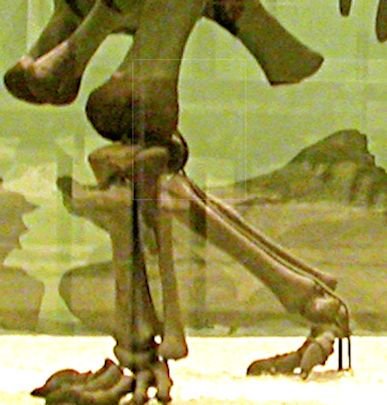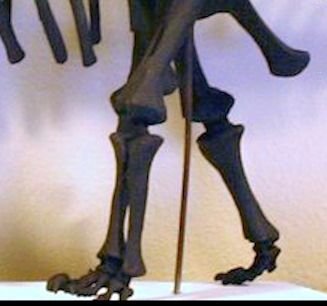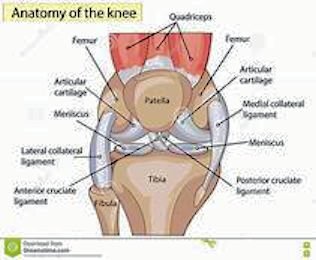In Part 4, we talked a little about predicting behaviors from what we find in the fossil record. Now, I would like to address how understanding dinosuar behavior may contribute to the advancement of medicine. Obesity (great weight) has been considered one of the major causes of osteoarthritis. However, weight bearing joints of sauropods are free of that disease (Rothschild 1990).

American Museum of Natural History Speciman 460
How could this be? It turns out that dinosaurs had a mechanical advantage that we lack. Their joints (e.g. knees) could only bend and straighten as hinges.

Although the human knee is sometimes called a hinge joint, look at your knee when you bend it: it rotates. Ligaments in the human knee prevent excess movement, but bone (joint) anatomy in the dinosaur can accomplish the same thing. As humans age and suffer the "slings and arrows of outrageous fortune,' the ligaments in their joints (e.g.knees) can become stretched or torn.

This causes the knees to become unstable and it is the instability and the mechanical disadvantage of shifting weight on a fulcrum that gives rise to osteoarthritis, not the weight itself (Rothschild, 2002).

www.webmd.com
As we better understand dinosaur behavior, we have the opprtunity to better understand ourselves.
Today's references:
Rothschild, B. M. 1990. Radiologic assesssment of osteoarthritis in dinosaurs. Annals of the Carnegie Museum 59:295-301.
Rothschild, B. M. 2002. Osteoarthritis: Its definition, character, derivation and modality-related recognition. Rijeka, Croatia, InTech.
Next up, in Part 6 I will discuss behaviors of warm vs. cold blooded animals and sauropods.
Wow, that's so interesting! I guess knee braces are meant to make our knees more like a hinge, like a sauropod!
It really shows the importance of keeping your ligaments and muscles in the knee strong to prevent instability.